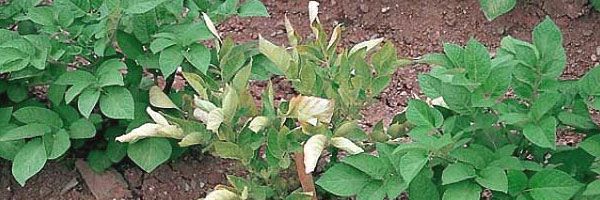
Potato leaf roll virus
(PLRV)
- Causal agent and transmission
Potato leaf roll virus is a Luteovirus transmitted by aphids feeding on the plant sap. The transmission of Potato leaf roll virus is called persistent (or circulative) because the aphid only becomes infectious after a latency period required for the transit of the virus in the insect’s intestine and then in its salivary glands.
Few aphid species can transmit PLRV: Myzus persicae is the most efficient vector but Aulacorthum solani and Macrosiphum euphorbiae may also transmit PLRV.
The natural host range of PLRV is rather narrow and most known hosts (about 20 species) are in the Solanaceae family.
The hosts belong to the cultivated plants (such as potato or tomato) or to the uncultivated species (e.g. Physalis floridana, Datura stramonium which can be a virus reservoir). Non-solanaceous hosts include Amaranthus caudatus, Celosia argentea, Gomphrena globosa and Capsella bursa-pastoris.
- Significance
PLRV can cause a yield reduction of up to 50- 80% on susceptible cultivars and, in some cases, it may cause tuber net necrosis.





